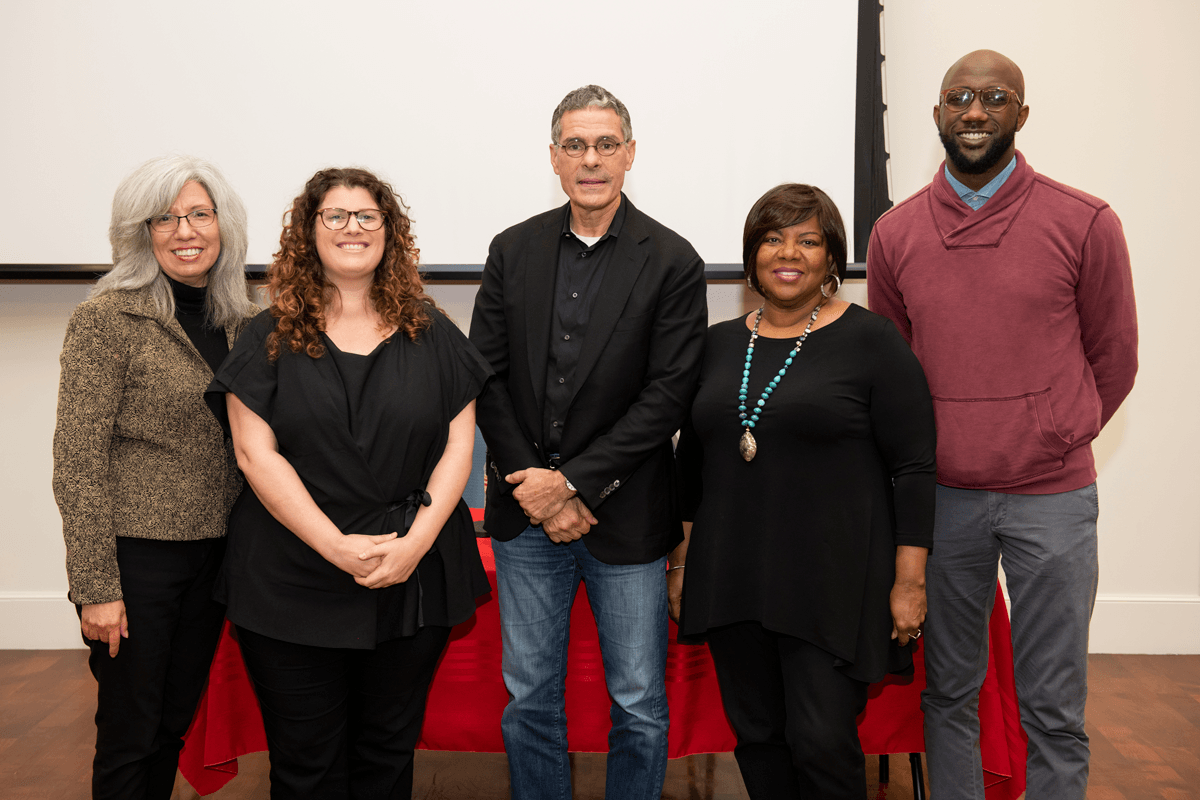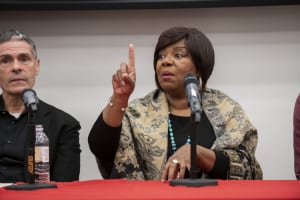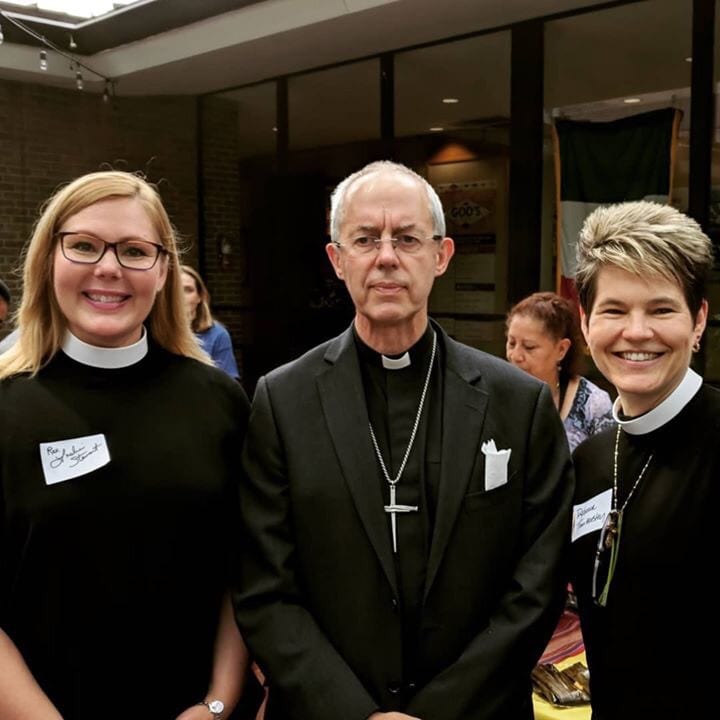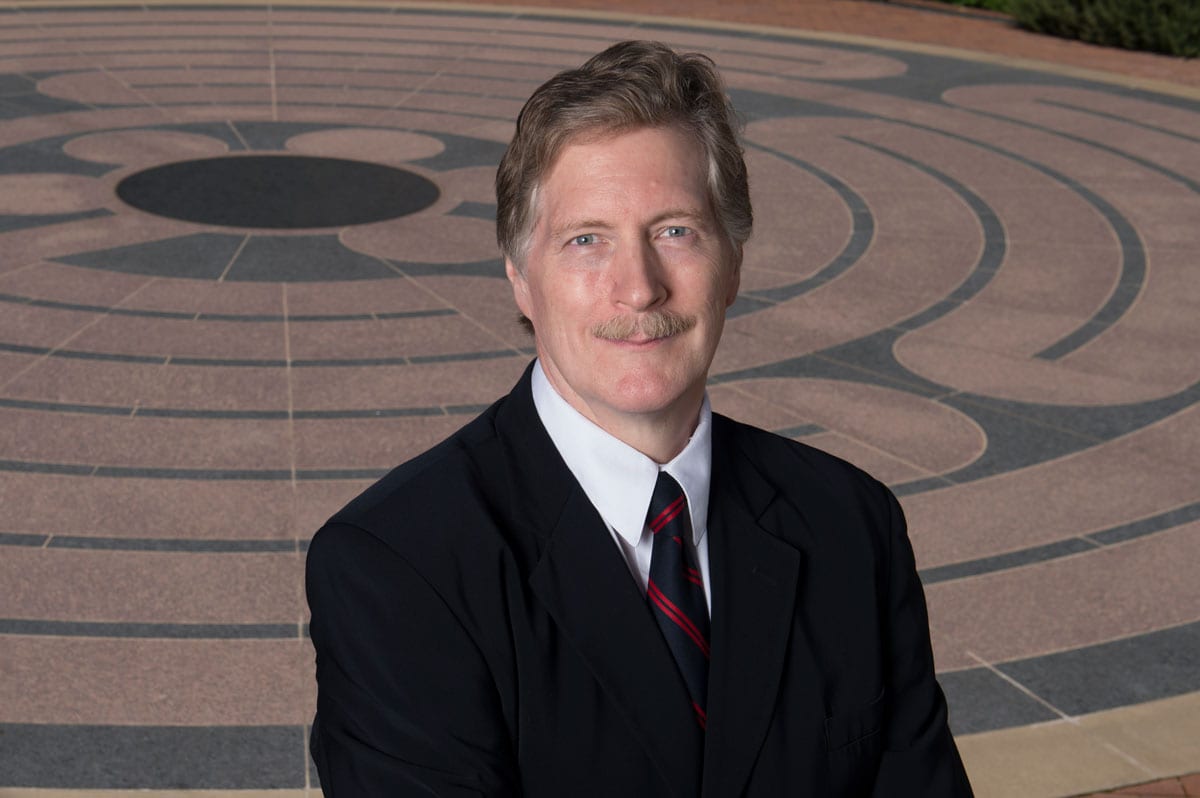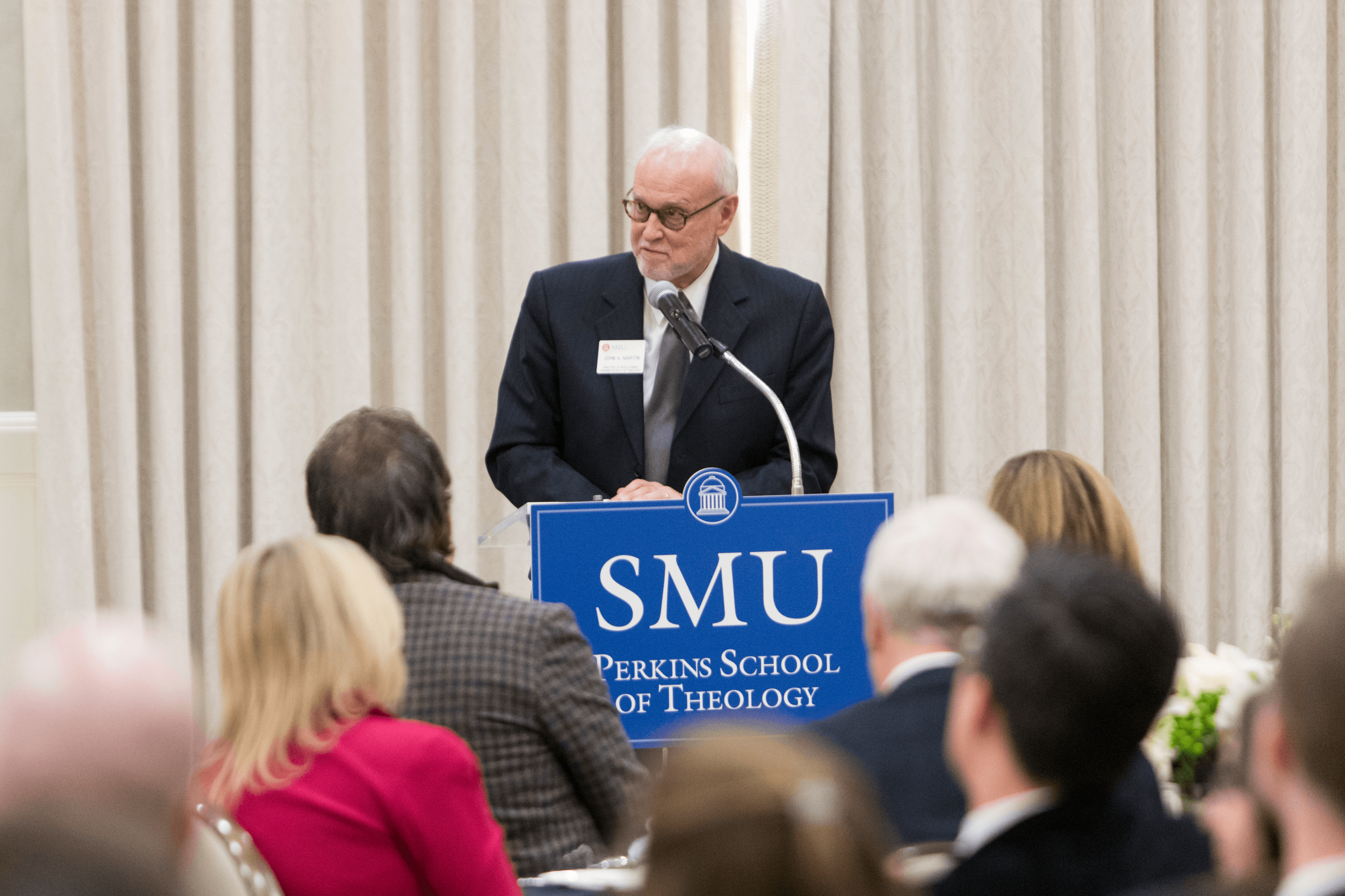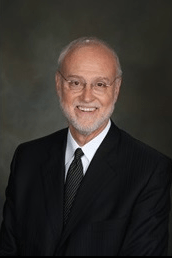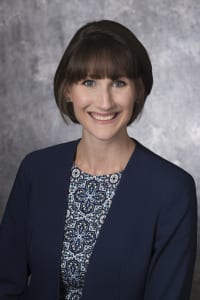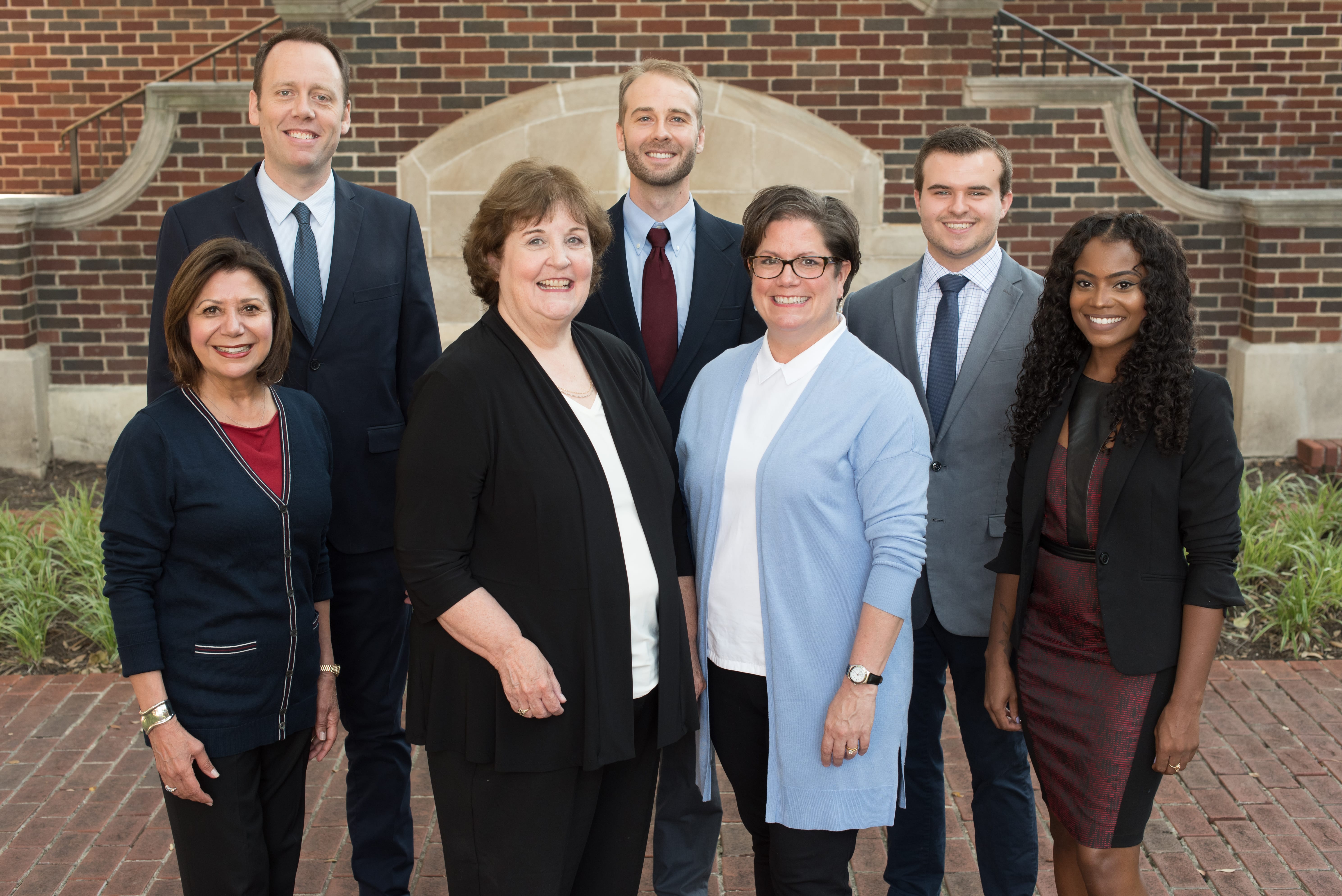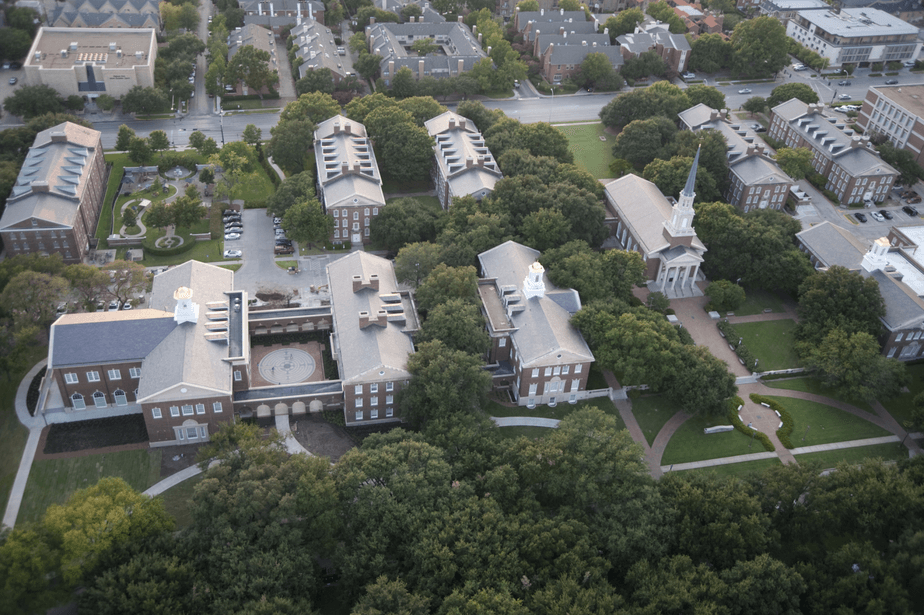By Mary Jacobs
At the border, you’ll find stories of heartbreak, horror, and occasionally, hope. You’ll meet real heroes, and a few villains, but mostly people who are caught between bigger forces and just trying to survive.
What you won’t find are simple solutions.
“The complexities of border life are real, often gut-wrenching, and will not easily be solved,” said Becky David Hensley, a Perkins alum.
That’s Hensley’s takeaway from an immersion trip to McAllen, Texas as part of Perkins’ McAllen and the Borderlands: Understanding the Church’s Mission, Ministry, and Social Responsibility. She was one of 10 participants — five students, three alumni and two faculty — who made the 7-day trip in July.
“It was designed to expose our students and others to the realities of the border,” said program leader Hugo Magallanes, who is Associate Professor of Christianity and Cultures at Perkins. “We wanted them to hear all sides of the story and to capture firsthand the stories of persons impacted by immigration laws and rules.”
The trip was sponsored by Perkins’ Global Theological Education and the Center for the Study of Latino/a Christianity and Religions. Participants toured and served at Catholic and Methodist missions like Catholic Charities Humanitarian Respite Center; Proyecto Azteca, a housing initiative; and La Posada Providencia, a residential refugee center. The itinerary also included worship at local churches and opportunities to talk with U.S. Border Patrol and Immigration and Customs Enforcement (ICE) staff, and experts in human trafficking and immigration. Participants also had the chance to talk one-on-one with those awaiting processing to enter the U.S.
“Their stories were very different from what you hear in the media,” said Isabel Docampo, Director, Center for the Study of Latino/a Christianity and Religions. “We heard these detailed, particular stories of desperation from people who did not desire to leave but felt they had no option.”
She met women running away from violent domestic partners; mothers with children they feared might be raped or conscripted by gangs; and a young woman from Honduras who’d been separated from her 5-year-old son for five months by U.S. immigration.
“As a mother, the thought that I wouldn’t know where my child was for months, it’s just the most inhumane thing,” Docampo said.
Kurt Maerschel, a third year M.Div. student and a participant on the trip, is an immigrant himself from Germany. His transition came with challenges, but those paled in comparison to what he saw at the U.S.-Mexico border: people who were tired, confused, exhausted, frightened, and utterly dependent on ministries like Catholic Charities for help.
“I met a lot of people at the border who are welcoming the stranger,” he said. “It opened my eyes to look for the ‘strangers’ in my own community. It will stay with me for a long time.”
The group also had a chance to cross into Mexico with Guillermo “Willie” Berman Ramirez, a missionary with the General Board of Global Ministries (GBGM) of the United Methodist Church, to visit an orphanage in Nuevo Progresso and a clinic in Rio Bravo.
“There are big, expensive homes in Rio Bravo which are mostly empty now because the gang violence is so bad,” said Jane Elder, a Perkins student and reference librarian at Bridwell.
“You realize that people are doing exactly what you and I would do, which is fleeing to a safer situation.”
One human trafficking expert told the group that trafficking in human organs is eclipsing human trafficking near the border. Medical personnel are advised not to wear scrubs in public areas, for fear they may be kidnapped and forced to harvest organs.
“The reality is so much worse than anything you read,” Elder said.
There were also moments of human connection. Hensley recalled a visit to the Catholic Charities Humanitarian Respite Center, where she had the chance to read to a group of children, ages five to 11.
“For several hours we laughed and fumbled our way through children’s stories and coloring books,” she said. “It was easy for a moment to forget what awful circumstances must have led them here – what horrors they must’ve endured on the journey. For a moment, they were just kids.”
Moments like that are important in understanding the border as well as in preparing for ministry anywhere, said Susan Hellums, Border Area Mission Coordinator for the Rio Texas Conference of the United Methodist Church, who helped shepherd the group.
“Trust and relationships are important in any ministry and in our Christian walk,” she said. “The only way to develop those relationships is to spend time with each other, listening and talking and sharing.”
The group also had the chance to dialogue with Border Patrol agents, including one who attends a United Methodist church. Agents double as law enforcement as well as emergency medical technicians. In many cases, the people they pick up at the border go straight to the emergency room; some are dead or dying. Even those in enforcement are caught up in forces out of their control, according to Docampo.
“The Border Patrol is the biggest employer in the area,” she said. “They’re just trying to do their jobs, with laws that are changing constantly. There are so many institutional and structural systems that have to change.”
“You have all these people in the grip of these gigantic forces: cartels, gangs, violence, exploitation, drugs, trafficking, government policies and local, state and federal law enforcement,” Elder said. “Often they have to trade one untenable situation for another. It’s a real mess that will break anyone’s heart.”
Docampo added that another goal of the program is to help participants, as future church leaders, to search for the best Christian witness as the U.S. struggles to find a workable immigration policy.
“Christian leaders are in the public square and can add a voice to the public conversation,” she said. “It is a responsibility that we can’t walk away from.”
Mary Jacobs, former staff writer for The United Methodist Reporter and the Dallas Morning News, is a freelance writer in Dallas.



